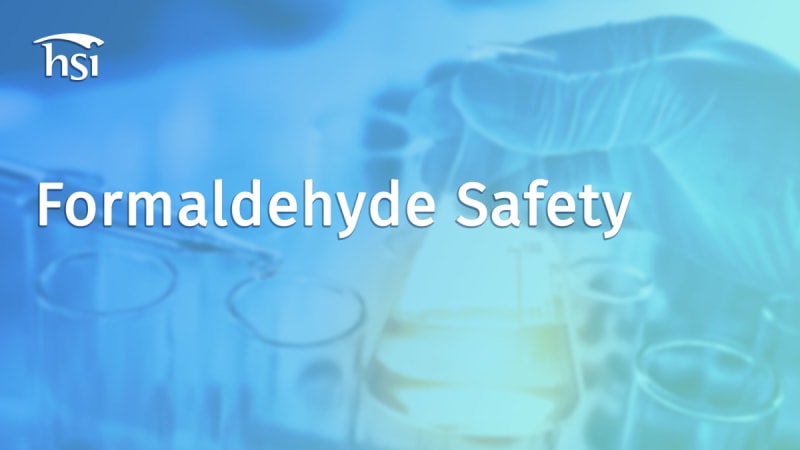What you'll learn
- Recognize the hazards of formaldehyde.
- Identify how workers can be exposed and the health effects of formaldehyde.
- Identify the exposure controls for protecting against formaldehyde hazards.
- Identify how to respond to a formaldehyde spill or release.
Formaldehyde is one of the most common industrial chemicals in use today. It is classified as a volatile organic compound. It is also an irritant to many workers and a known human carcinogen. Usually, it is found in liquid form.
Formaldehyde has a flashpoint of 185 degrees Fahrenheit, meaning that at this temperature and above, the formaldehyde solution gives off enough vapor to form an ignitable mixture with air to produce a flame in the presence of an ignition source—at that temp it readily catches fire. It can explode even from the spark of an electric switch.
When formaldehyde is mixed with certain chemicals, the results can be very dangerous or even explosive, in some cases. Formaldehyde doesn’t play well with other chemical compounds and should not be mixed with strong oxidizing agents.
The learner will recognize the occupational hazards and health effects of exposure to formaldehyde and formaldehyde-based products, how this exposure occurs, and the controls necessary to ensure worker safety when exposed to these products in the workplace, including accidental spills or release.








